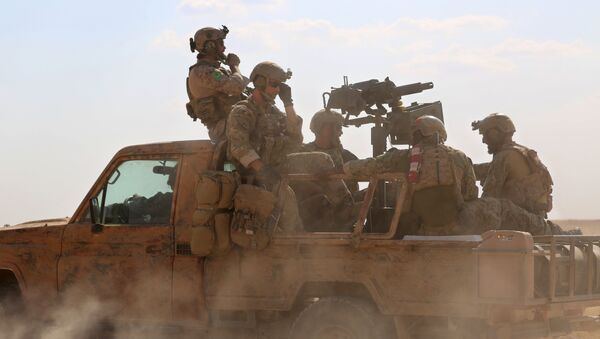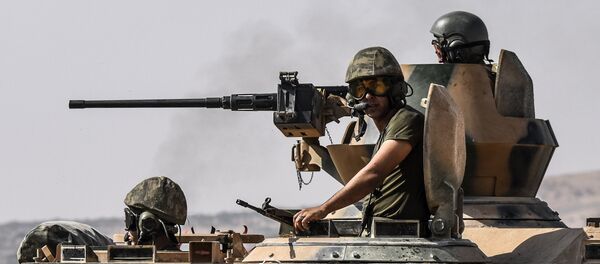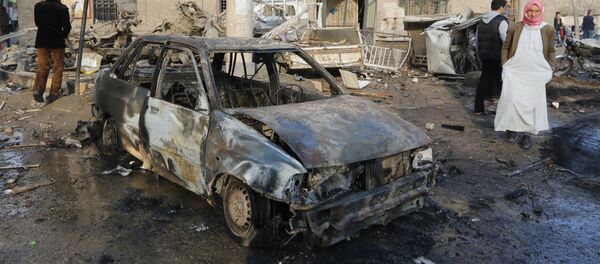Sivkov mentioned "accidental" airstrikes, as well as Washington's inability to separate so-called moderate groups from al-Nusra Front as prime cases in point.
"All of these mistakes are extremely weird since they work for the benefit of those forces whom [Washington] backs. Any claims that they are fighting against al-Nusra Front are a myth. They are not really tackling [Daesh] as well. This is an instrument of [America's] geopolitics. This is why [the US] is not particularly addressing the issue of destroying [these groups] but rather taking them under control to use for other tasks," he explained.
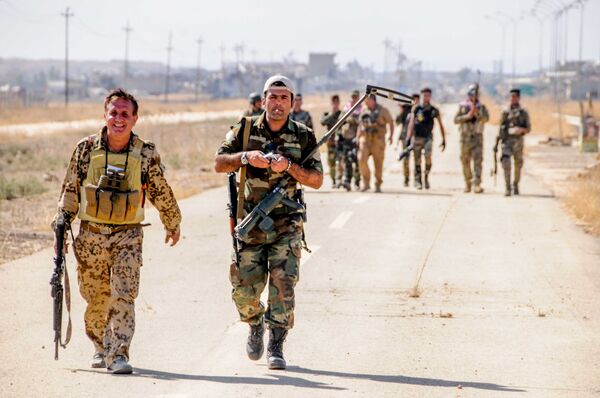
"This is why all of these 'mistakes' are, let's say, planned," he noted.
In Sivkov's opinion, the US military and intelligence communities are behind this strategy.
"The US military does not have comprehensive intelligence on Syria. They mainly receive information [on the embattled country] from the Central Intelligence Agency (CIA). This is how separation of duties works there. It is the CIA that is occasionally making these so-called mistakes. I think one should not blame solely the Pentagon. It is much rather a matter of a concerted stance of America's political, military and intelligence leadership."
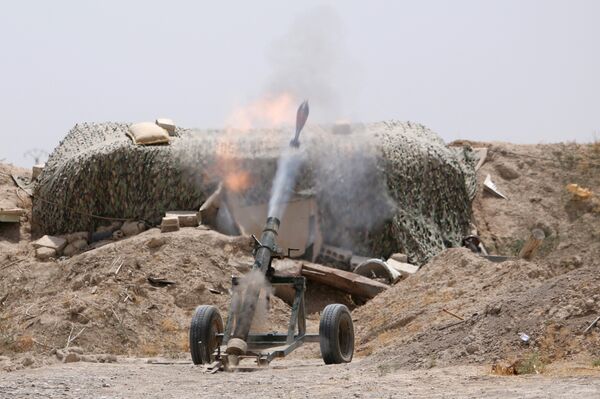
Sivkov further commented on the Pentagon's apparent decision to launch an operation to free Raqqa in the coming weeks. Earlier, US Secretary of Defense Ashton Carter suggested that the US had enough resources for two major overlapping anti-Daesh operations, but the Russian defense analyst pointed to another possible explanation.
Initially, Washington intended to focus its efforts on helping Baghdad retake Mosul, with Raqqa taking a back seat. However, since the US' "minions," as Sivkov put it, referring to Al-Nusra Front and similar organizations, have increasingly struggled on the Syrian battlefield, the US "needs to take perhaps a large part of Syria under control and deploy its forces to the area."

